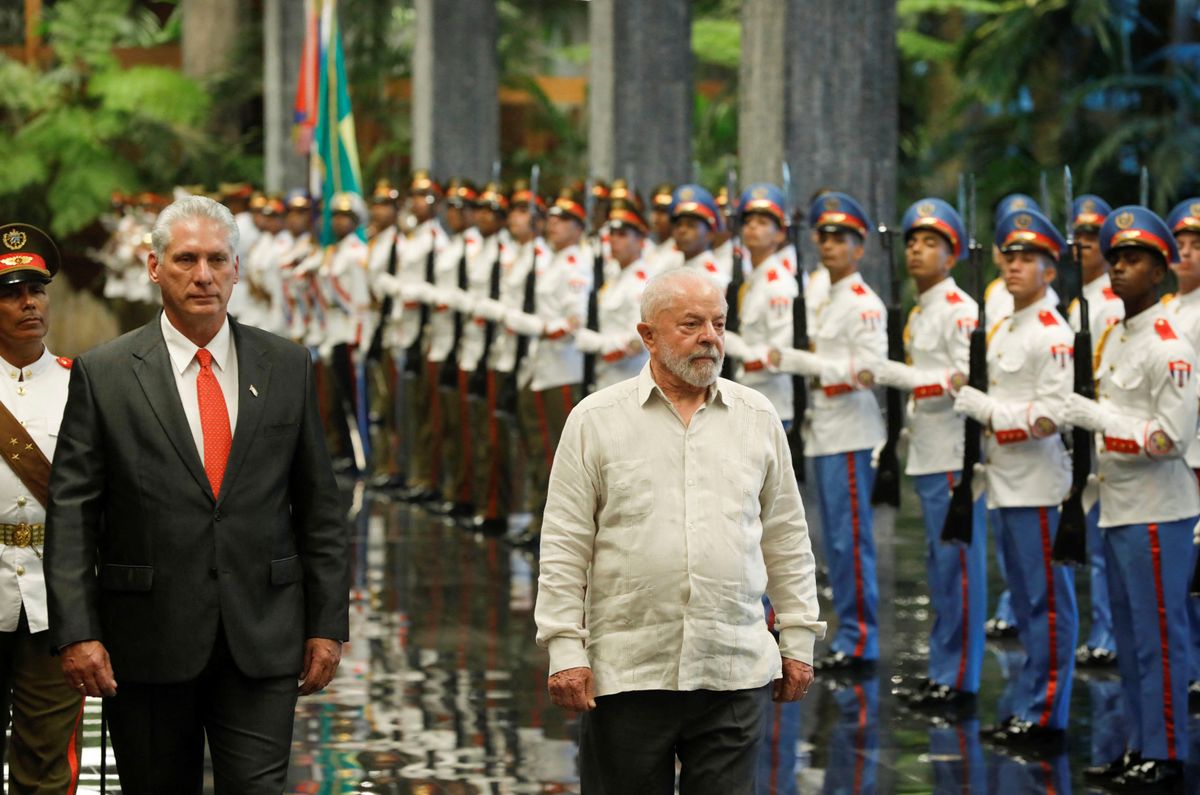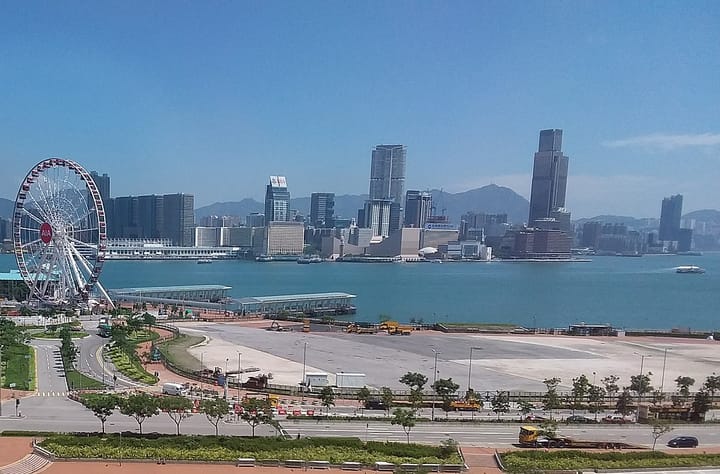G77+China summit takes on science and tech in Cuba
On Friday, the G77+China summit kicked off for a two-day event in Havana.

A few minutes every morning is all you need.
Stay up to date on the world's Headlines and Human Stories. It's fun, it's factual, it's fluff-free.
The backstory: The G77+China is a group of originally 77 developing countries (and China) representing about 80% of the world’s population. Now, there are 134 countries represented by the G77. China says that it’s not a G77 member, even though it’s listed as one, but the country says it supports the group's claims and wants to work with it. The G77 is the largest bloc in the UN by population and number of member states. This year, the group’s presidency is held by Cuba.
More recently: There’s been a lot of friction recently between developing and developed (mostly Western) countries, triggered by things like the COVID pandemic, the war in Ukraine, issues with climate change and injustice in the global economic system. For example, during the pandemic, there was an unequal distribution of vaccines, with all of the vaccines except Cuba's being produced outside of the G77 bloc. So, richer nations got better access to these vaccines. On top of that, Cuba says that UN data shows that just 10 countries have 90% of the global patents and 70% of global exports when it comes to advanced digital production technologies.
The development: On Friday, the G77+China summit kicked off for a two-day event in Havana. Its theme this year was science, technology and innovation. Opening the conference, Cuban President Miguel Diaz-Canel said that developing countries like those in the G77 are the main victims of what he called a "multidimensional crisis" that comes from things like "abusive unequal trade" and global warming.
UN Secretary-General António Guterres also spoke, noting the challenges the G77 now faces, from rising poverty and hunger to rising prices and soaring debt, to more extreme climate risks. He pointed out that many international organizations and institutions, like the World Bank and the UN Security Council, were created when many countries were still dealing with colonization and didn’t have any say in their own affairs. He also mentioned how this year’s theme could boost solidarity, solve problems and help with sustainable development.
On Saturday, the G77 decided to declare September 16 the annual "Day of Science, Technology and Innovation in the South.” By the time the event was closing, Diaz-Canel called on attendees to “change the rules of the game.” The G77 plans to have another specific meeting to deal with the points raised at the summit.
Key comments:
"After all this time that the [Global] North has organized the world according to its interests, it is now up to the [Global] South to change the rules of the game," Cuban President Miguel Diaz-Canel said as the summit opened on Friday.
“I count on your Group, who have long been champions of multilateralism, to step up, to use your power, and fight,” said UN Secretary-General António Guterres, addressing the leaders at the event. “Champion a system rooted in equality; champion a system ready to reverse the injustice and neglect of centuries; and champion a system that delivers for all humanity and not only for the privileged.”
"We note with deep concern the existing disparities between developed and developing countries in terms of conditions, possibilities and capacities to produce new scientific and technological knowledge," the final declaration of the G77 group of developing nations and China reads. "We call upon the international community, the United Nations System and the International Financial Institutions to support the efforts of the countries of the South to develop and strengthen their national science, technology and innovation systems.”




Comments ()